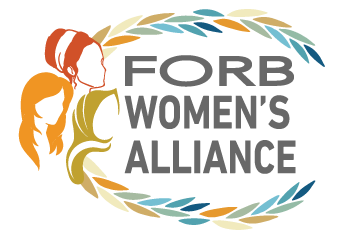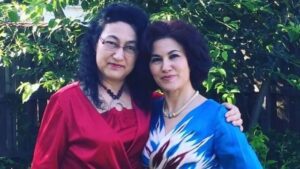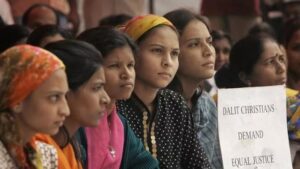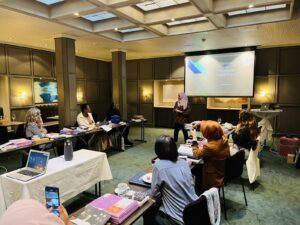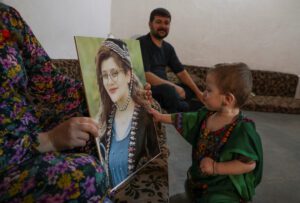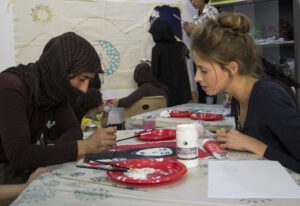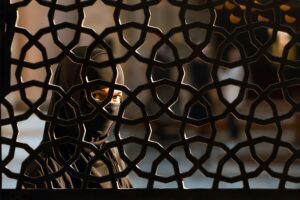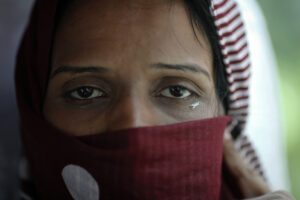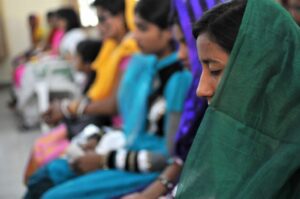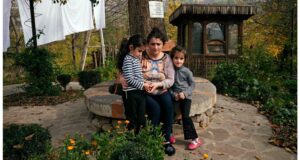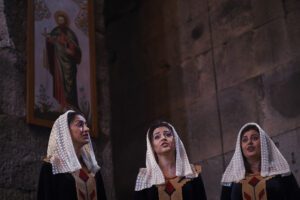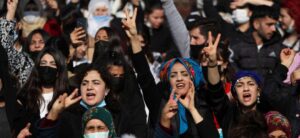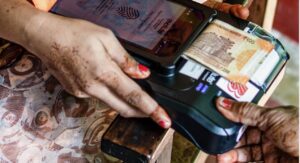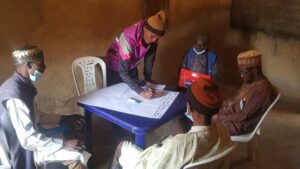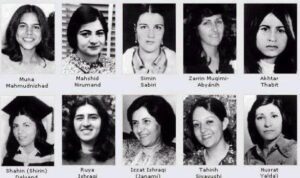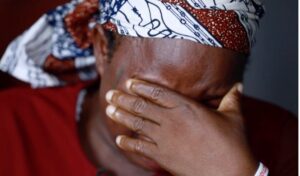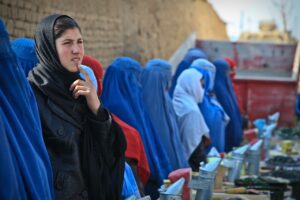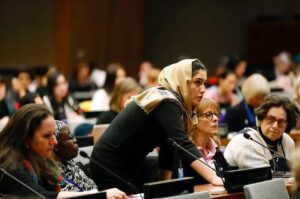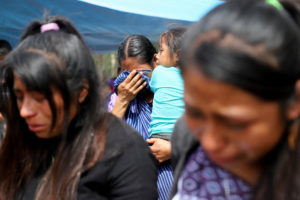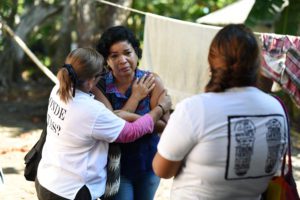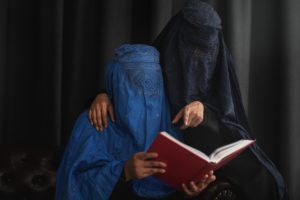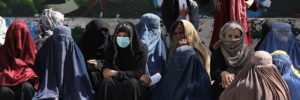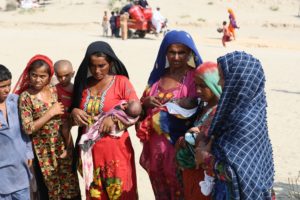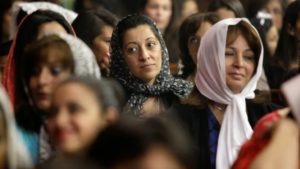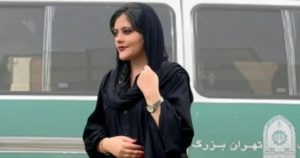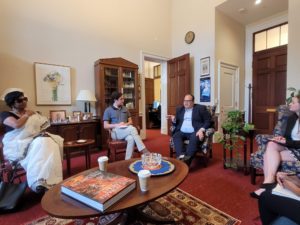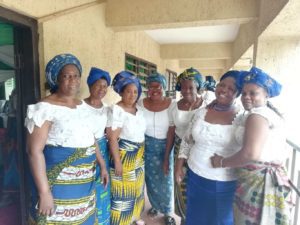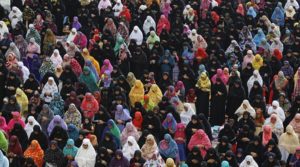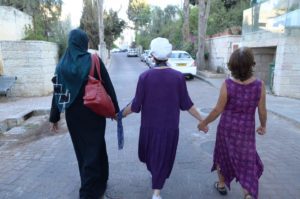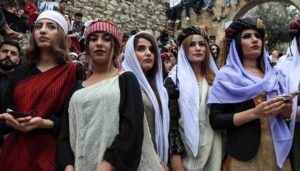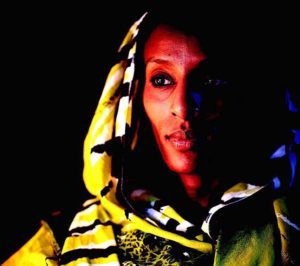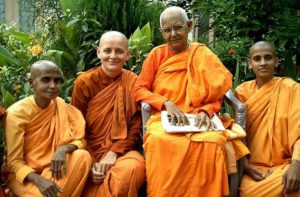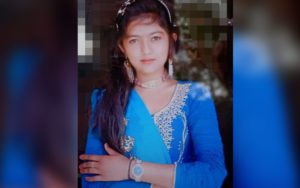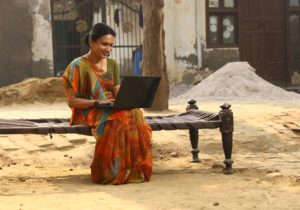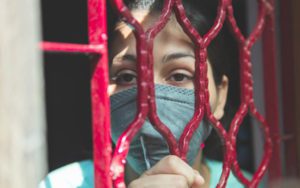Irene Ibrahim Shehata lives in Egypt. She is a 21-year-old Coptic Christian and was, until recently, a medical student. On January 22, 2024, she was ‘disappeared’ between mid-term exams at Assiut National University. Her stunned family lodged complaints, but the police were hostile and even gave them false leads, wasting precious time and resources. Irene reportedly had dated a Muslim man for some time during her one-year studying abroad, before ending the relationship. Still, the man and his family, with the full support of Egyptian authorities, believe it is their right as Muslims to:
- Abduct Irene;
- Forcibly marry her to the man;
- Forcibly change her faith to Muslim on her national ID;
- Restrict her freedom of movement so she cannot see her own family, friends, or attend church; and
- Prevent her from continuing her medical studies.
Irene is being held as a captive, with the full knowledge and complicity of the local police and State Security agency who have threatened her family after they spoke publicly about the heinous crime committed against their daughter. As of this writing, the Egyptian government has made no effort to reunite Irene with her family and bring the perpetrators to justice.
Irene was abducted because she is a Coptic Christian.
Who are the Copts? They are the indigenous people of Egypt and the descendants of the ancient Egyptians. Copts now are the largest Christian and non-Muslim community in the Middle East, comprising 12-15% of the total Egyptian population of 111 million.
Copts were one of the earliest followers of Christianity after St. Mark brought the Gospel to Egypt where many of the greatest Christian theologians lived, including Athanasius, Anthony (of the desert) and Cyril the Great. While most Copts are Coptic Orthodox, there are also Coptic Evangelicals and Catholics, and the term “Copt” and “Coptic” now refers to Egyptian Christians.
Copts have survived centuries of persecution since the first Arab Muslim invasion in the 7th Century, to the Memluks (the abducted slaves-turned-warriors, whose dynasties ruled Egypt from the mid 13th to early 16th centuries), and Ottoman Turks (who administered Turkey for about three centuries, starting in 1517). Vicious rulers sought to convert Copts to Islam through torture, imprisonment, starvation, cruelty, unbearable taxation and other forms of oppression. And they succeeded with many, which is why the Copts became a minority in Egypt.To this day, both the Egyptian government (officials and institutions) and Egyptian society treat Copts as second-class citizens, with this treatment sanctioned in the Egyptian constitution: The second article states that “Islam is the religion of the state…and the principles of Islamic Shari’a are the main sources of legislation.” Shari’a is founded on inequality between a “believer” (a Muslim) and a non-believer, in addition to inequality between men and women. For Copts, discrimination, exclusion and persecution characterize every area of Egyptian life in society, government, education, sports, and much more.As FoRB Women’s Alliance has underscored, women and girls, especially those from minority communities (such as Copts), are targets of compound persecution and least likely to receive protection or assistance from government or society. In fact, Copts experience the opposite, given the policies of the Egyptian government, a radicalized society, and Islamists activists/terrorists, who consider Copts the primary obstacle to fulfilling their goal to Islamize Egypt and nations beyond. Key to their achieving this goal is trafficking Coptic women and girls.
Coptic Solidarity (CS) has reported for a decade to U.S. governmental entities about the trafficking of Coptic women and girls, but were met with silence. In 2020, the organization published ‘Jihad of the Womb:’ Trafficking of Coptic Women & Girls in Egypt. The report’s name reflects the fact that: “Because numbers always mean strength, Muslim clerics present this ‘procreation’ jihad as a way of killing two birds with one stone: seize and seed non-Muslim women with Muslim babies. Doing so depletes the infidels’ ranks of women and the non-Muslim babies they might have birthed, while simultaneously increasing both for Islam.”This comprehensive report now is the primary source for governments and international bodies such as the UN and EU that previously had labeled such trafficking as “abductions,” “kidnappings,” or “luring.” In fact, these crimes fall within United Nations’ conventions and protocol for trafficking as well as Article 10 of the Arab Charter on Human Rights, Egyptian, and U.S. definitions of trafficking in persons. Furthermore, the forced disappearance of Egyptian minor girls (below 18 years of age) also constitutes crimes that contravene the UN Convention on the Rights of the Child.
The dangers Coptic women and girls face have reached unprecedented levels. Egyptian state security, police, and judiciary work together to deny indigenous Coptic women like Irene their most basic rights. Such denial of rights is taking place in a highly patriarchal society for both Muslims and Christians. Such a patriarchy was not always the case. Prior to the 1980’s, few Egyptian women wore headscarves and generally were free to be in public without facing censure or harassment due to what they wore or if a male did not accompany them.
Sadly, that relative freedom changed with the growing influence of the Egyptian Brotherhood and spread of Saudi Wahhabism, resulting in a society that represses women, regardless of race or religion. A 2008 study from the Egyptian Center for Women’s Rights found that 83% of women interviewed reported being sexually harassed at least once and 50% experienced it daily. According to a 2024 World Population Review report, “Egypt has …the seventh-highest gender inequality… Egypt ranks sixth for laws and regulations that limit women’s ability to participate in society and the economy.”
The compound persecution Irene and other Coptic women and girls face because of their religion and gender, along with the impunity enjoyed by the perpetrators, is a constant reality for Coptic families throughout Egypt. But the situation needn’t remain this way if enough individuals, organizations, and governments speak out in support of Coptic women and girls.
If you’d like to help, here are some ways to get started:
- Educate Yourself
- Read ‘Jihad of the Womb:’ Trafficking of Coptic Women & Girls in Egypt.
- Watch the episode by CS founding board member, Magdi Khalil, titled Who is Responsible for the Islamization of Coptic Women and Minor Girls in Egypt?
- Read exclusive news and insight in both English and Arabicregarding how some Egyptian government officials and police collude in trafficking these women and girls.
- Read the statement by CS and the Jubilee Campaign to the Human Rights Council in the 53rdSession of the UN on Trafficking of Coptic Christian Women and Girls in the Arab Republic of Egypt.
- Read CS’s review of the USCIRF’s report, Personal Status and Family Law in the Middle East and North Africa which found “these laws have a particular and consequential impact on the rights of women, including their right to religious freedom.”
- Take Action
- Sign Coptic Solidarity’s petition raising awareness and demanding action to end the trafficking of Coptic women and minor girls.
- Spread the Word
Lindsay Rodriguez is the Director of Development & Advocacy at Coptic Solidarity
